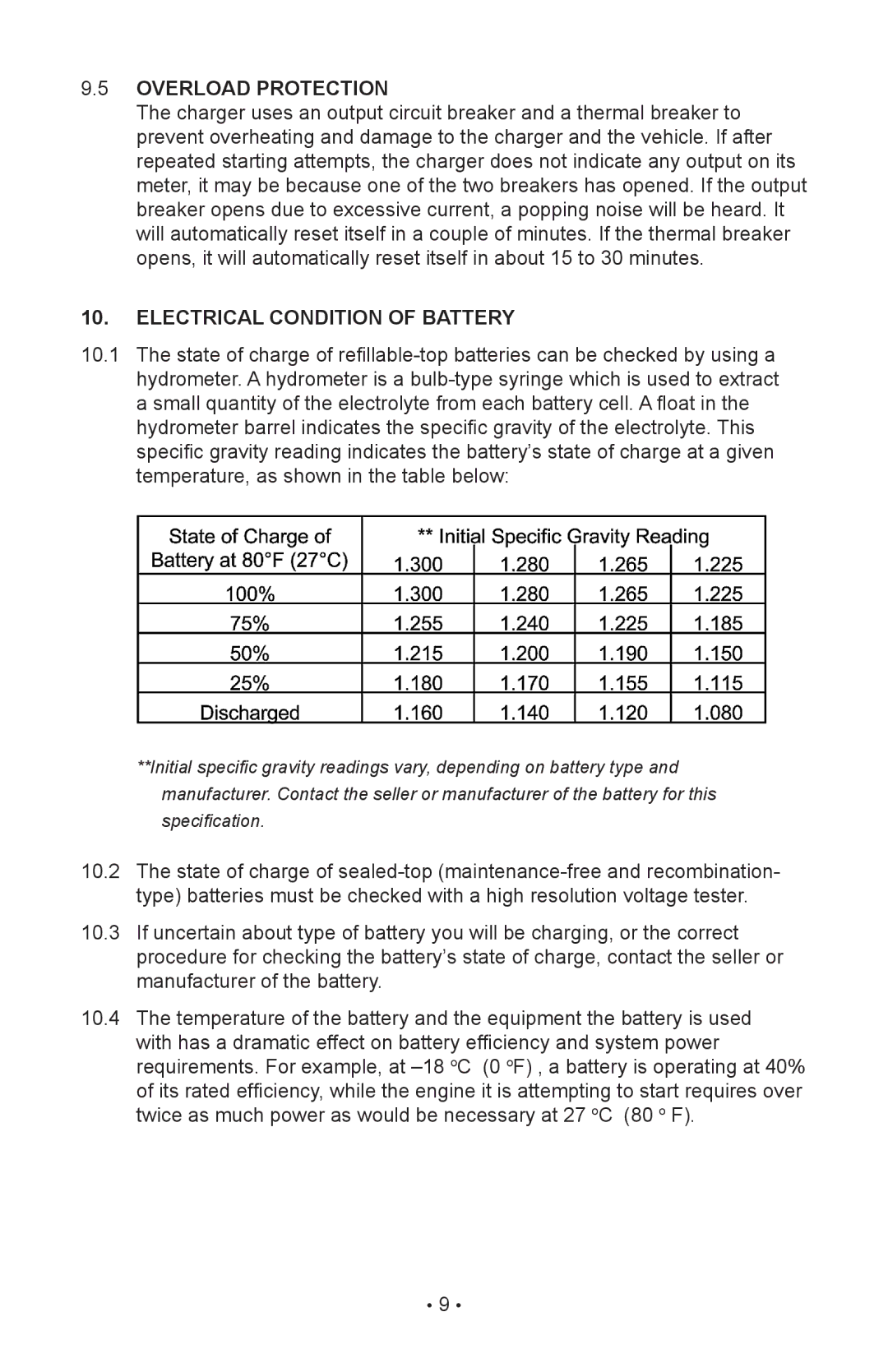
9.5OVERLOAD PROTECTION
The charger uses an output circuit breaker and a thermal breaker to prevent overheating and damage to the charger and the vehicle. If after repeated starting attempts, the charger does not indicate any output on its meter, it may be because one of the two breakers has opened. If the output breaker opens due to excessive current, a popping noise will be heard. It will automatically reset itself in a couple of minutes. If the thermal breaker opens, it will automatically reset itself in about 15 to 30 minutes.
10.ELECTRICAL CONDITION OF BATTERY
10.1The state of charge of
**Initial specific gravity readings vary, depending on battery type and
manufacturer. Contact the seller or manufacturer of the battery for this specification.
10.2The state of charge of
10.3If uncertain about type of battery you will be charging, or the correct procedure for checking the battery’s state of charge, contact the seller or manufacturer of the battery.
10.4The temperature of the battery and the equipment the battery is used with has a dramatic effect on battery efficiency and system power requirements. For example, at
• 9 •
